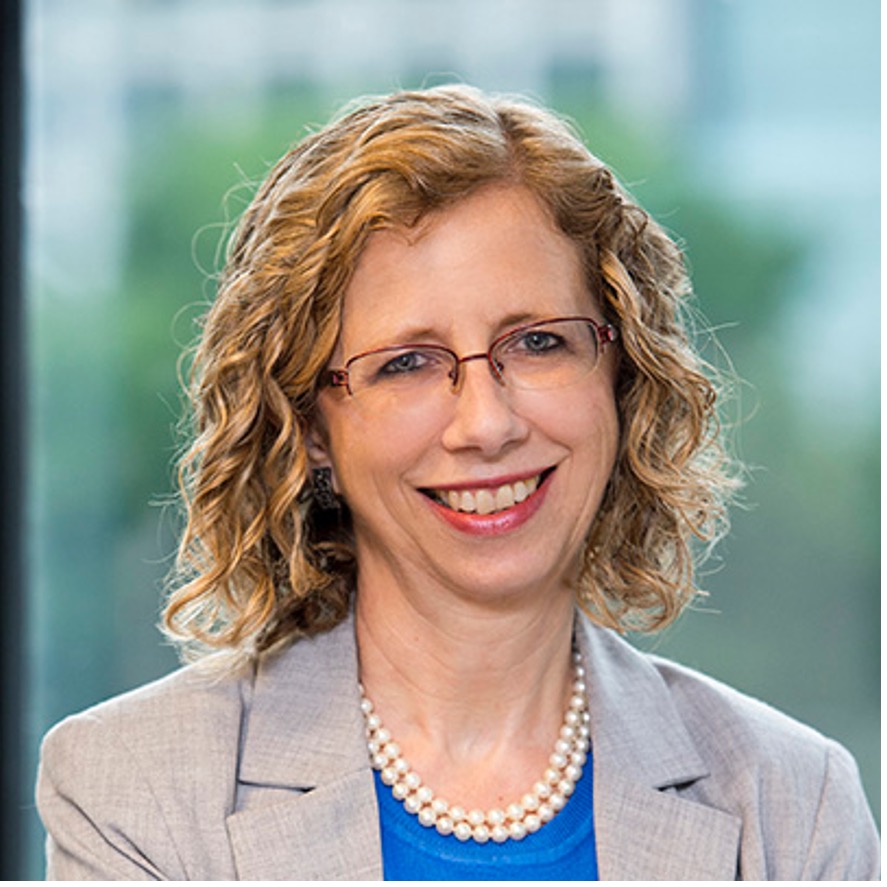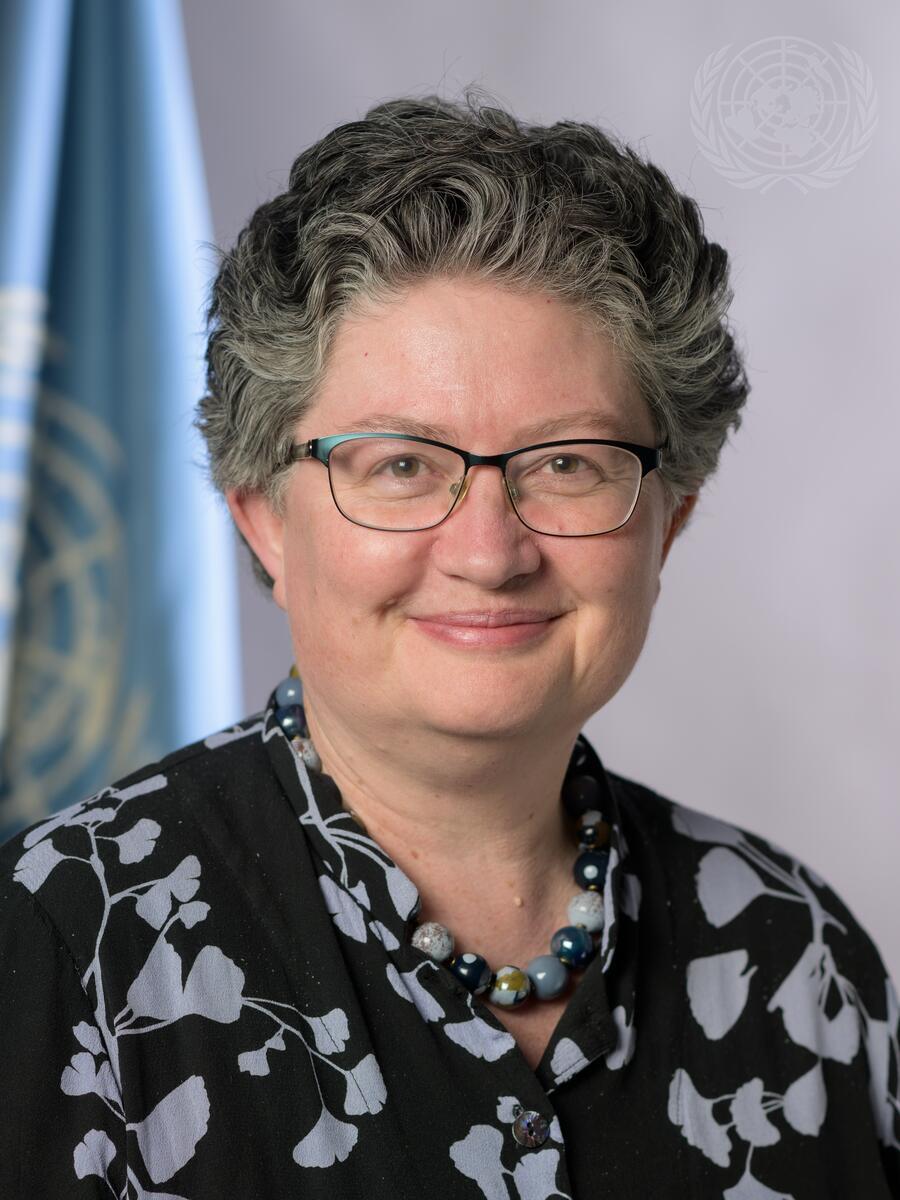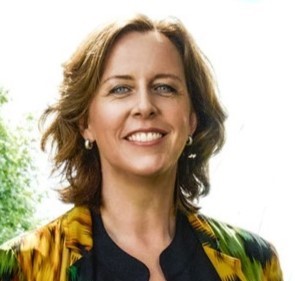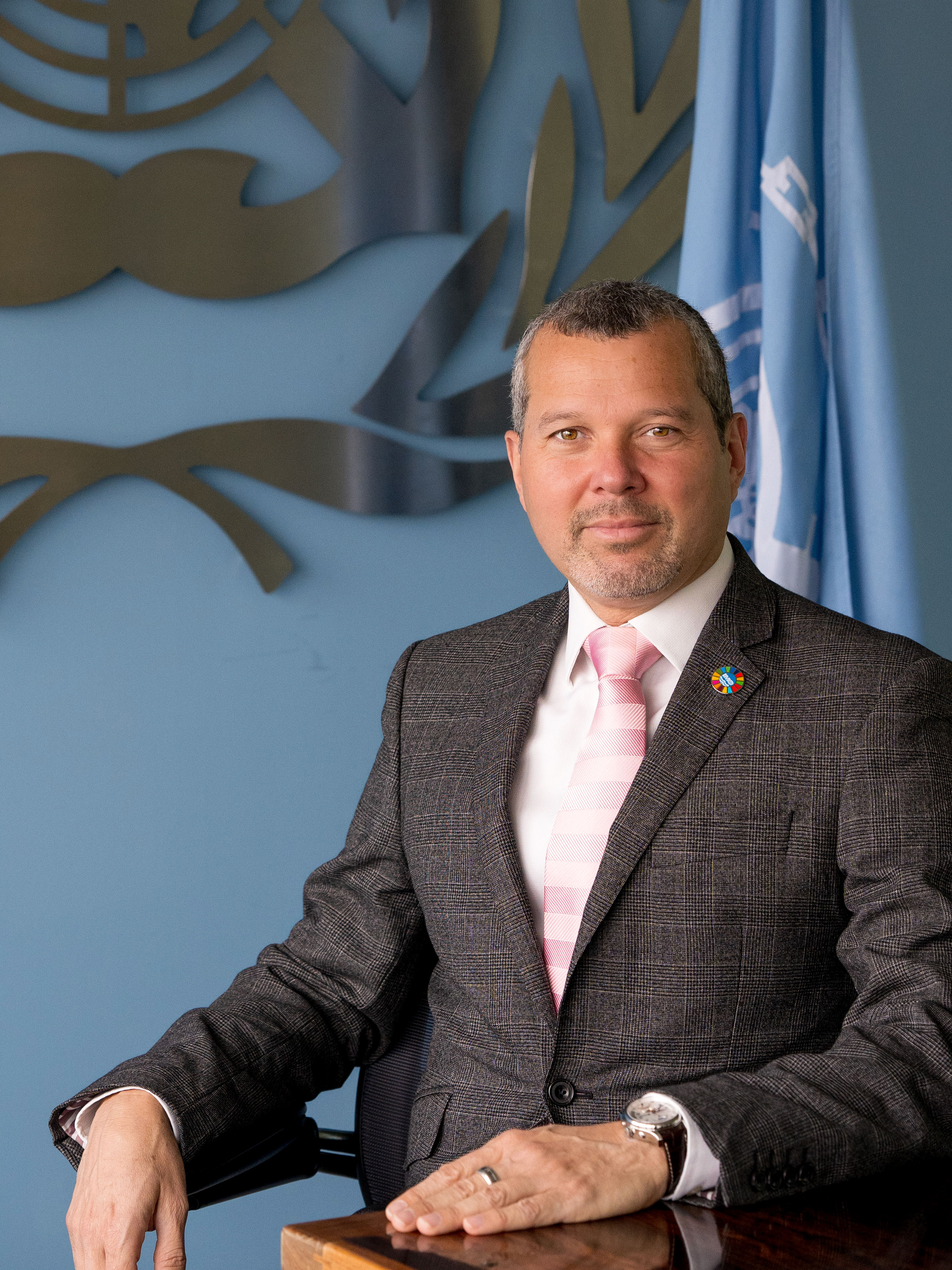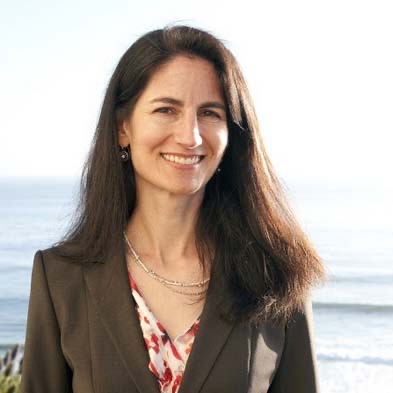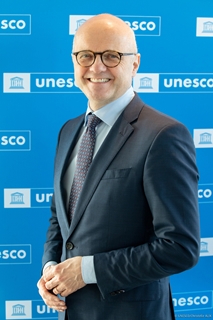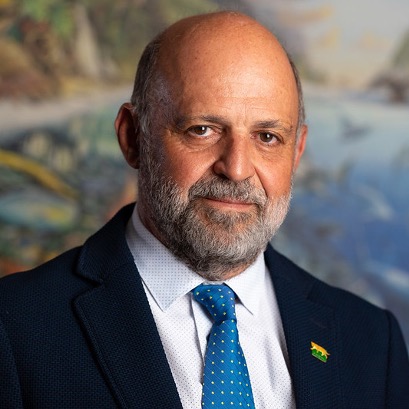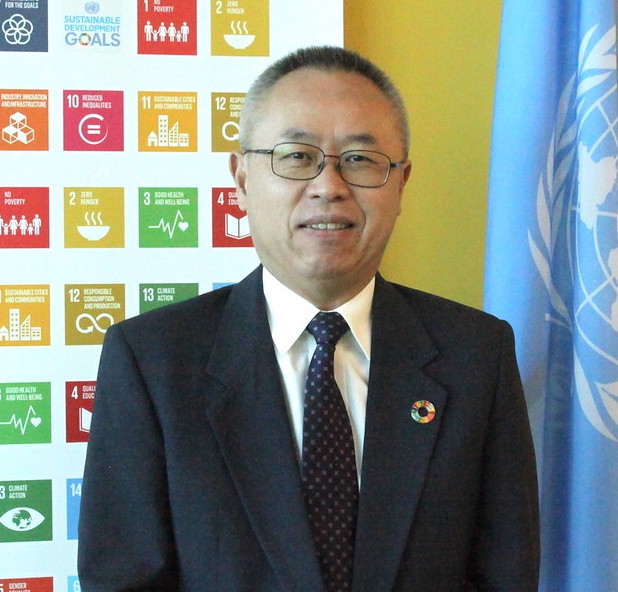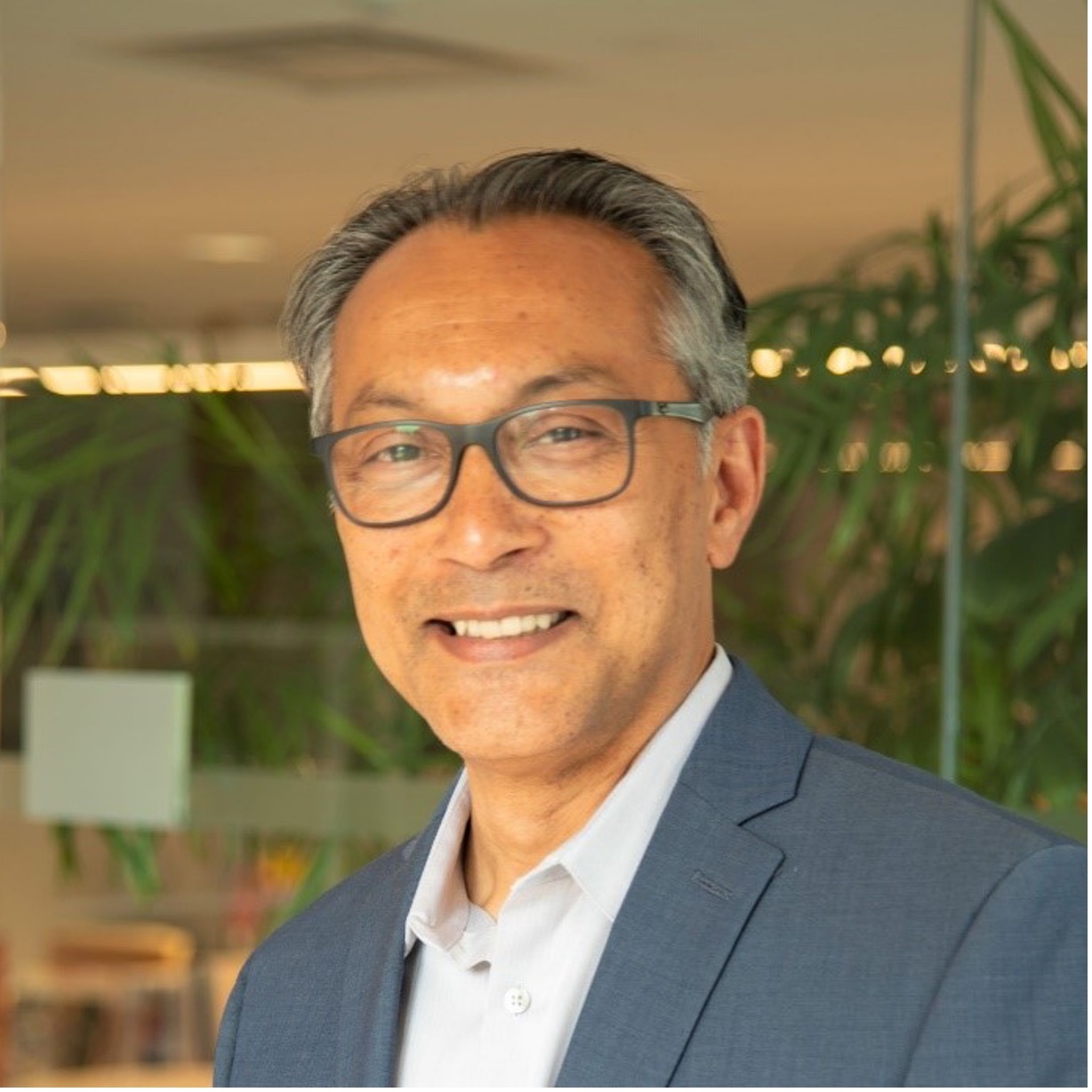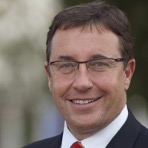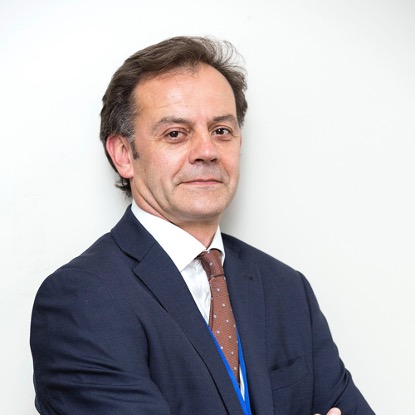
Background
At the High-level United Nations Conference to Support the Implementation of Sustainable Development Goal 14 (SDG 14) - The Ocean Conference - held in June 2017 at UN headquarters in New York, close to 1,400 voluntary commitments for concrete action to advance implementation of SDG 14 were made by governments, the United Nations system, civil society organizations, academia, the scientific community, and the private sector. These commitments, together with the Conference outcome document Our Ocean, Our Future: Call for Action, mark a global breakthrough on the path to sustainable management and conservation of our oceans, seas and marine resources.
Each of the Ocean Conference voluntary commitments addresses one or several of the SDG 14 targets, often with an associated positive impact on other SDGs, including for example SDG 3 on good health and well-being and SDG 13 on climate action, among others.
To follow up on the implementation of these voluntary commitments; to catalyze and generate new voluntary commitments; and to facilitate collaboration and networking amongst different actors in support of SDG 14, the United Nations has launched nine thematic multi-stakeholder Communities of Ocean Action.
Each community is coordinated by designated focal points who work together with the United Nations Secretary-General's Special Envoy for the Ocean, Ambassador Peter Thomson, and the UN Department of Economic and Social Affairs in carrying out the activities.
The nine Communities of Ocean Action are:
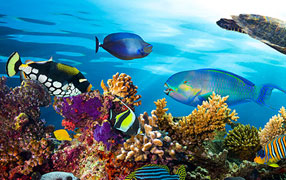
Coral Reefs
Coral reefs are one of the most diverse ecosystems on earth...
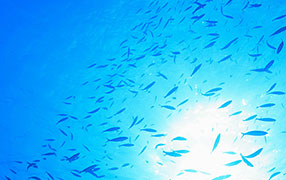
Implementation of International Law as Reflected in United Nations Convention on the Law of the Sea
Addressing the anthropogenic pressures on marine ecosystems...
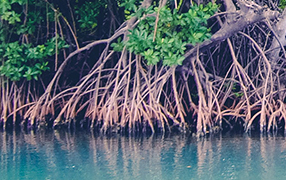
Mangroves
Mangroves are highly productive ecosystems providing numerous goods and services...
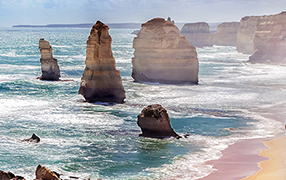
Marine and Coastal Ecosystems Management
Diverse area-based measures and management tools can be used to sustainably manage...
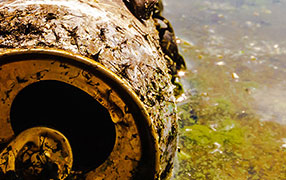
Marine Pollution
Marine pollution from human activities can be found at all points across the ocean’s vast expanse...
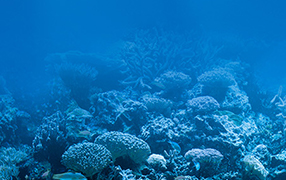
Ocean Acidification
Ocean acidity has increased by roughly 26% since pre-industrial times because of increased releases of CO2...
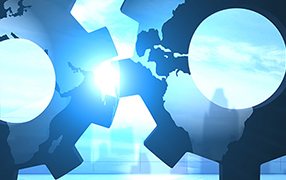
Scientific Knowledge, Research Capacity Development and Transfer of Marine Technology
Sustainable management and conservation of the ocean requires a solid and trusted knowledge base...
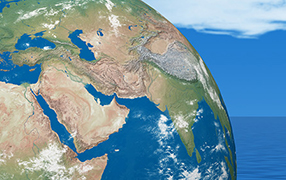
Sustainable Blue Economy
The oceans are central to sustainable development globally, and particularly for SIDS and coastal LDCs...
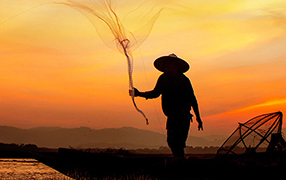
Sustainable Fisheries
Marine fisheries are a key source of economic and food security, providing livelihoods for the 300 million people involved in the sector...
Join Communities of Ocean Action
All stakeholders with registered Voluntary Commitments, either at the Conference or subsequently, may join any of the Communities of Ocean Action to stay informed and take part in supporting activities, including workshops, webinars, expert discussions and networking.
Share progress of your Voluntary Commitments
All stakeholders with registered Voluntary Commitments are encouraged to regularly share progress of their Voluntary Commitments by submitting an update through the dedicated Communities of Ocean Action pages.
Launch of Communities of Ocean Action, 27-30 November 2017
The nine new thematic multi-stakeholder Communities of Ocean Action were launched during a series of webinars held from 27-30 November. The Special Envoy for the Ocean, Ambassador Peter Thomson, designated focal points for each community that have been drawn from the UN system and civil society/scientific and technological community, and over 200 relevant stakeholders participated in the launch events.
Focal Points
To support the work of these Communities of Ocean Action, designated focal points have been identified for each thematic area from among those actors that have registered voluntary commitments in the online registry, who will work together with the United Nations Secretary-General's Special Envoy for the Ocean and the UN Department of Economic and Social Affairs.
Coral Reefs

Dr. Khaled Asfahani
ICRI co-chair and Chief Executive Officer (CEO), General Organisation for the Conservation of Coral Reefs and Turtles in the Red Sea, Kingdom of Saudi Arabia
Contacts
- Ms. Sinikinesh Beyene Jimma, Coordinator, Marine and Coastal Ecosystems Unit, Ecosystems Division, United Nations Environment Programme | email: sinikinesh.jimma@un.org
- Mr. Gabriel Grimsditch, Programme Management Officer, Marine and Coastal Ecosystems Branch, Ecosystems Division, United Nations Environment Programme | email: gabriel.grimsditch@un.org
- Mr. Francis Staub, Global Coordinator, International Coral Reef Initiative | email: fstaub@icriforum.org
- Ms. Margaux Monfared, International Policy and Advocacy Director, International Coral Reef Initiative | email: margaux.monfared@icriforum.org
Implementation of International Law as Reflected in United Nations Convention on the Law of the Sea
Contacts
- Mr. Dmitry Gonchar, Principal Legal Officer, UN | email: gonchar@un.org (UN)
- Mr. CAI, Yongsheng, Legal Officer, International Seabed Authority | email: yshcai@isa.org.jm | (International Seabed Authority)
- Mr. Jose Dallo Moros, Director of the Office of Environmental Management and Mineral Resources, International Seabed Authority | email: jdallo@isa.org.jm | (International Seabed Authority)
Mangroves
Contacts
- Mr. Ali Raza Rizvi, EbA Programme Manager, Global Ecosystem Management Programme, IUCN | email: ali.raza@iucn.org | (IUCN)
Marine and Coastal Ecosystems Management
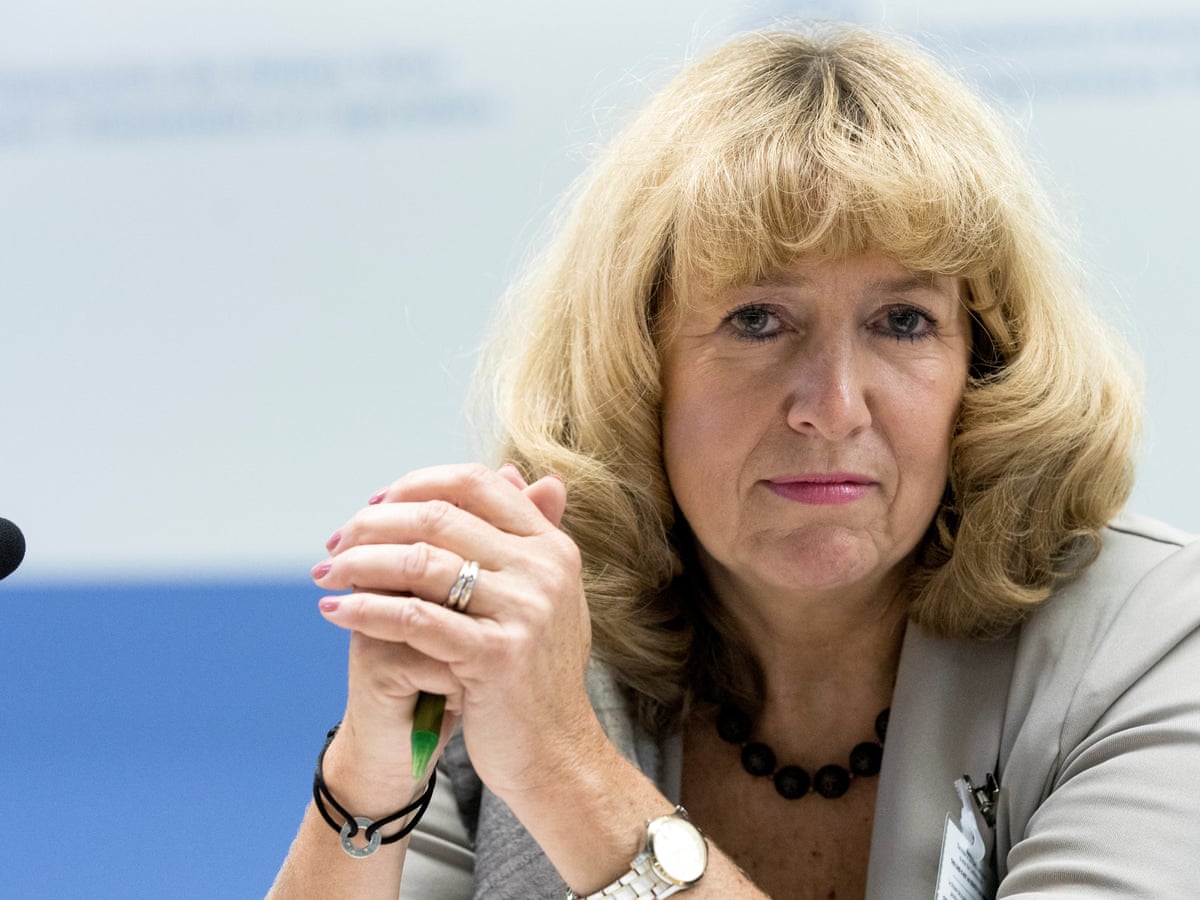
Ms. Astrid Schomaker
Acting Executive Secretary of the Convention on Biological Diversity Secretariat (CBD)
Contacts
- Ms. Pauli Merriman | Policy Manager Oceans | WWF International | Tel: +46 767 886 185 | E-mail: pmerriman@wwfint.org
- Mr. Joseph Appiott, Coordinator for Marine, Coastal and Island Biodiversity, Secretariat of CBD | email: joseph.appiott@cbd.int | (CBD)
Marine Pollution
Contacts
- Mr. Hiroyuki Yamada, Director of Marine Environment Division, IMO | email: hyamada@imo.org | (IMO)
- Mr. Fredrik Haag, Head, Office for the London Convention/Protocol and Ocean Affairs, Marine Environment Division | email: fhaag@imo.org | (IMO)
- Ingrid Giskes, Director Global Ghost Gear Initiative, Ocean Conservancy/GGGI | email: IngridGiskes@ghostgear.org
Ocean Acidification

Mr. Steve Widdicombe
Co-Chair, Global Ocean Acidification Observing Network (GOAON)

Ms. Florence Descroix-Comanducci
Director, International Atomic Energy Agency Environment Laboratories
Contacts
- Mr. Steve Widdicombe, Global Ocean Acidification Observing Network | email: swi@pml.ac.uk| (GOAON)
- Ms. Kirsten Isensee, Intergovernmental Oceanographic Commission of UNESCO | email: k.isensee@unesco.org | (UNESCO)
- Ms. Jana Friedrich, Head, Ocean Acidification International Coordination Center | email: J.Friedrich@iaea.org (IAEA)
Scientific Knowledge, Research Capacity Development and Transfer of Marine Technology
Contacts
- Ms. Isabel Chavez | email: i.chavez@unesco.org | (UNESCO)
- Mr. Julian Barbière | email: J.Barbiere@unesco.org | (UNESCO)
- Mr. Chris Severin, Program Leader for Oceans, Global Environment Facility (GEF) | email: cseverin@thegef.org (GEF)
Sustainable Blue Economy
Contacts
- Ms. Madhushree Chatterjee, Division for Sustainable Development Goals, UNDESA | email: chatterjeem@un.org(UNDESA)
- Ms. Xin Feng, Division for Sustainable Development Goals, UNDESA | email: xin.feng@un.org (UNDESA)
- Mr. Kristian Teleki, Director, Sustainable Ocean Initiative, World Resources Institute | email: kristian.teleki@wri.org
Sustainable Fisheries
Contacts
- Mr. Andrew Hudson, Head, Water & Oceans, UNDP | email: andrew.hudson@undp.org | (UNDP)
- Mr. Manuel Barange, Director of the Fisheries and Aquaculture Policy and Resources Division, FAO | email: Manuel.Barange@fao.org | (FAO)
- Mr. Kim Friedman, Senior Fishery Resources Officer, FAO | email: Kim.Friedman@fao.org | (FAO)
- Mr. Joe Zelasney, Fishery Officer, FAO | email: Joseph.Zelasney@fao.org | (FAO)
- Generic FAO email: FIA-Director@fao.org | (FAO)
Objectives
In collaboration with the UN DESA and Mr. Thomson, focal points are expected to:
- Generate multi-stakeholder interest and engagement in the Communities of Ocean Action and in the follow-up to The Ocean Conference in general;
- Participate in online and in-person meetings as necessary;
- Consult broadly with the relevant community to provide assessments of progress of Voluntary Commitments, and collect examples of successful implementation of Voluntary Commitments;
- Consult with the relevant thematic community to identify challenges to implementation of Voluntary Commitments;
- Help identify gaps in implementation in the Ocean Action area and spur the creation and registration of new Voluntary Commitments by all stakeholders;
- Collect expertise in areas related to the community of action and help channel best practices and policies to the Voluntary Commitments follow-up process;
- Contribute to the preparation of materials such as briefing notes and online newsletters;
- Identify experts who could be qualified to participate in expert meetings and panel discussions.
Expected outputs
The following outputs are expected to be accomplished by the next anticipated Ocean Conference in 2022.
- Assessment on the progress of registered Voluntary Commitments in the areas related to the Community of Ocean Action;
- Increased registrations of new Voluntary Commitments in the area related to the Community of Ocean Action;
- Increased multi-stakeholder interest and engagement in the Community of Ocean Action and in the follow-up to The Ocean Conference;
How to Join
The Communities of Ocean Action are open to anyone with a registered Voluntary Commitment in the Ocean Conference Registry of Voluntary Commitments.
Steps to join
1. Register a voluntary commitment for SDG 14, making sure to select a Community of Ocean Action in the appropriate field.
Questions and answers
1. I have registered a Voluntary Commitment, but I do not have an account
- Contact us and let us know so we can link your Voluntary Commitment to your account.
2. I have an account, but I still can't join
- Contact us and let us know so we can link your Voluntary Commitment to your account.
How To Contribute
As a member of the Community of Ocean Action, you can contribute in several ways.
Register Voluntary Commitments
The Ocean Conference Registry of Voluntary Commitments remains open for all stakeholders to register their ocean action. We encourage all stakeholders to register their ocean action to show their commitment to SDG 14.
Take part in webinars and face-to-face meetings
Each Community will organize on a regular basis virtual global webinars and face-to-face expert meetings. Join the Communities to ensure you receive information and invites.
Share updates of your Voluntary Commitments
All stakeholders with a registered Voluntary Commitment are welcome to share their progress of its implementation on an ongoing basis. Updates will be featured on this page and in the Ocean Action monthly newsletter.
Share your knowledge
All members of the Community Ocean Action can share their expertise, knowledge, best practices and respond to questions in the Knowledge Forum, available under each Community of Ocean Action page after logging in.
Ocean Action Newsletter
- Ocean Action Newsletter, November 2025
- Ocean Action Newsletter, May 2025
- Ocean Action Newsletter, December 2023
- Ocean Action Newsletter, August 2023
- Ocean Action Newsletter, March 2023
- Ocean Action Newsletter, July 2022
- Ocean Action Newsletter, April 2022
- Ocean Action Newsletter, January 2022
- Ocean Action Newsletter, October 2021
- Ocean Action Newsletter, April 2021
- Ocean Action Newsletter, December 2020
- Ocean Action Newsletter, September 2020
- Ocean Action Newsletter, June 2020
- Ocean Action Newsletter, April 2020
- Ocean Action Newsletter, December 2019
- COA event at COP25 in Madrid, 7 December 2019
- Meeting Report of the Communities of Ocean Action "From Commitments to Action: Implementing SDG14," Incheon
- Ocean Action Newsletter Vol. 10, June 2019
- Meeting of the Communities of Ocean Action "From Commitments to Action: Implementing SDG14," 30-31 May 2019, Incheon
- Webinar #1 on follow-up to Ocean Voluntary Commitments (focus on mangroves)
- Webinar of the Community of Ocean Action on sustainable blue economy, 12 July 2018
- UN DESA launches revamped Voluntary Commitments platform to drive Ocean Action for SDG 14
- SYMPOSIUM REPORT: SDG14 Pacific commitments 2018 Action Agenda 19 December 2017, Fiji
- Summary & pictures from event on Building Community of Ocean Action on Marine pollution, 6 December 2017, UNEA
- In-depth analysis of Ocean Conference Voluntary Commitments to support and monitor their implementation
Ocean Action Newsletter (Subscribe)
Stay in touch with Ocean Action related news.
Ocean Action Newsletter (Unsubscribe)
Resources
Please visit this page for more information and resources on the Voluntary Commitments for the implementation of Sustainable Development Goal 14
Documents
Reports
Other documents
Meeting reports
Events
Feb 2020
Sep 2019
Pagination
- Page 1
- Next page


